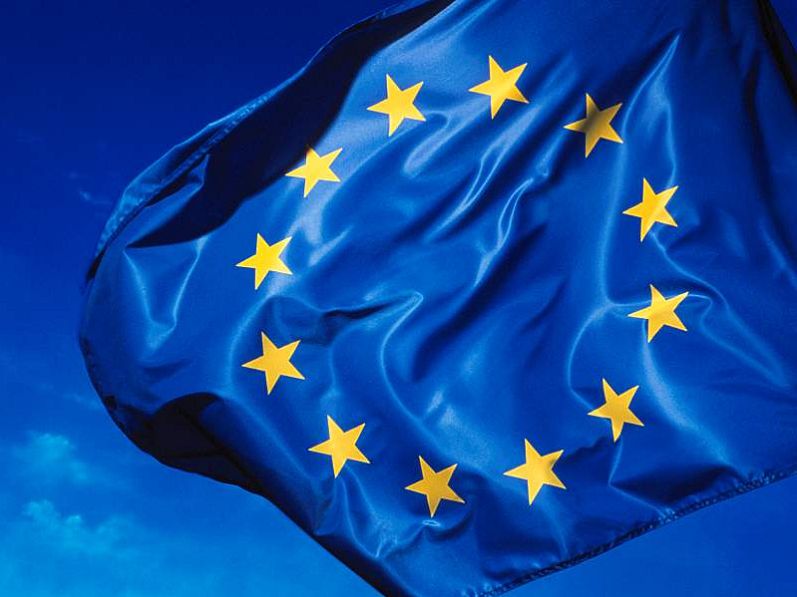
Out of control: EU incapable of finding a reasonable solution to the Greek crisis
By Peter Wahl, WEED
The EU is going through a dramatic crisis with far-reaching consequences. Although the end of the tragedy is not yet in sight, the damage is already huge. The brutal power play of the EU against Greece throws instructive light on the democratic deficit in the EU. The crisis shows how strong centrifugal tendencies have become in the EU. In this situation, a deepening of integration will only accelerate them. Therefore, the illusion of a political union has to be given up and the final goal of the process must be redefined towards more internal flexibility and more openness towards the outside.
When this text was finished (1 July, 10 a.m.) no one knew how the confrontation between Greece and the other 17 countries of the Eurogroup would continue. Even though the deadline for an agreement on the payment of the extended EU rescue package is over, and an IMF credit over 1,5 bn USD has not been paid by 1 July 2015, hectic activities – letters, phone calls, diplomacy behind the scenes – continued, and will continue for a while. It is impossible to identify from the outside what is part of the blame game on all sides and what is a serious attempt at finding a solution. The crisis has reached such precipitating dynamics that nobody is able to fully control the process. It is highly questionable whether the EU will reach its strategic double goal: keeping Greece in the Euro and getting rid of the Syriza government. Still, anything is possible. A last-minute muddling might occur through compromise. But there might also be an insolvency and a subsequent Grexit, either by ac- cident or intention. However, one thing remains certain. The EU is going through a historic crisis with far-reaching consequences. Regardless of how the drama continues, the damage is already huge and irreversible. From the outside, the situation appears to be a total mess. Compared to the extraordinary problems the EU is confronted with – migration, Ukraine, Brexit, rightwing populism, terrorism, the economic crisis and unemployment in many member states – the Greek issue almost appears to be the easiest to manage. Hence, seen from Rio, Tokyo or Beijing, the would-be superpower EU looks rather ridiculous.
New chapter of democratic deficit
Looking closer, one can see an abyss of brutal power plays and blackmail by the neoliberal Goliath against the Greek David. Goliath cannot accept that a country whose population is completely exhausted and depressed by five years of failed crisis management should have the right to democratic self-determination. The fact that the referendum came as a shock to the Eurogroup offers deep insight into their understanding of democracy. In a statement at the finance ministers’ conference, the Greek representative, Yanis Varoufakis, had reminded that his “party received 36% of the vote and the government as a whole commanded a little more than 40%. Fully aware of how weighty our decision is, we feel obliged to put the institutions’ proposal to the people of Greece.” But such reasoning seems alien to the “institutions” and the leading governments. Jeroen Dijsselbloem, Dutch Finance Minister and chair of the Eurogroup, called the Greek decision “unfair” after Greece refused to swallow the ultimatum he had set. Once again, Social Democrats are at the forefront when it comes to propaganda and slander against Greece. German Foreign Minister Steinmeier even likened the referendum to Tsipras taking the Greek people as “hostages”. Sigmar Gabriel, Germany’s Social Democratic Vice-Chancellor, delivered a threatening message on Monday, 29 June: “A No vote is a vote for Greece to leave the Euro.”
The eurocratic elites are used to taking decisions of historic importance without consulting the sovereign of democracy, the citizens. Thus the Lisbon Treaty, which replaced a draft constitution after its rejection in referenda in France, the Netherlands and Ireland in 2005, or the far-reaching measures of crisis management since 2008, which have been implemented in a kind of permanent emergency mode. The Greek experience adds a fresh chapter to the long story of the EU’s democratic deficit. Those who have been hoping for 25 years for a social and democratic EU will be disillusioned by the Greek experience.
Typically, the information policy of the Eurogroup has been completely non-transparent. As they never published negotiation documents, one had to rely on the statements of the politicians, who, of course, are always biased by their strategic interests. Syriza published the draft agreement, which the Eurogroup refused to accept. In despair, Juncker finally put the latest EU proposal of 26 June online, claiming he wanted the Greeks to know the “truth”. From the documents, it becomes clear that the statement that no cuts in pensions or increase in VAT would be required was simply not true.
Increasing centrifugal tendencies
Whatever will happen with Greece in the future, the whole drama is another indicator that the EU is coming to a historical turning point. Too many weighty problems remain unresolved, starting with the currency. Economically, it is a misconstruction to have a common currency for such a heterogeneous group of economies without an overarching single state. The economic crisis and the failure in crisis management have further deepened the asymmetries. The centrifugal tendencies are increasing. Even if another referendum, the one in the UK, should not lead to a Brexit, the whole process will definitely lead to a weakening of the EU.
This centrifugal trend will be intensified by another important development, which has emerged since the 2008 financial crisis: Germany is playing an increasingly hegemonic role. A basic element of the philosophy of European integration, i.e. embedding and containing the biggest country in the middle of the continent – has been flipped. In spite of all public statements to the contrary, this is not appreciated by most Europeans, especially by the former imperial powers, the UK and France. German hegemony will therefore be contested and the enthusiasm for deeper integration will be limited. This will not change with the recent proposal by Juncker, Tusk, Schulz, Dijsselbloem and Draghi for a leap forward in the economic and monetary integration of the Euro-zone. This plan will not work, as most countries are not willing to follow this path. As the handling of the migration problem shows, most member states are increasingly putting their national interests first.
Realism instead of euromanticism
The EU is in sharp decline. In order not to fall back into complete national fragmentation, it would be wise to redefine its future, the so-called finality question. The illusion of the United States of Europe should definitively be buried. Instead, more internal flexibility and pluralism are required, including with regard to economic models. Neoliberal constitutionalism as anchored in the treaties must be broken. We need less centralisation and more subsidiarity. This means selective disintegration in certain areas, such as the common currency. The taboo of discussing alternatives to the single currency, which has even large sectors of civil society in its grip, must be lifted. In return, selective integration in other areas should be promoted, for instance in developing common grit for renewable energy and sustainable transporta- tion or consumer protection, including against big data.
At the same time, more openness is required towards the outside. This could mean strengthening partnerships with North Africa, Turkey and the Middle East, as well as taking up the idea of “a common humanitarian and economic space from the Atlantic to the Pacific”, as suggested in the common declaration of Hollande, Merkel and Putin for the Minsk II Agreement. In times of globalisation, the idea of establishing a federal superstate seems somewhat antiquated. We need realism instead of euromanticism.
Do you need more information?
-

Myriam Vander Stichele
Senior Researcher







